With the right tools, every church has the potential to grow. In 2024, one of those tools is almost certainly an app.
A useful, well-designed app can extend your reach and help develop the kind of warm, welcoming community you continuously strive to create. It can also help you, as a church leader, operate more efficiently and effectively.
But as with nearly every other venture you undertake, you might be concerned about how expensive it will be to develop an app. To give you an idea of the costs involved — and learn more about how to approach church app building — we asked some pros for guidance. Below, you’ll find all the basics surrounding church apps before you get going, including good reasons to create one, the types of apps and features you’ll need, and estimated church app development costs.
Why create your own church app?
Regardless of the development costs, you might be wondering if your church even needs an app in the first place.
Apps are all the rage these days; some organizations develop them simply because everyone else is doing it. But an app isn’t likely to turn around a struggling church on its own, nor is it a quick and easy fix for slipping engagement numbers. That said, creating an app can be highly beneficial — if you take the time to do it right.
Digital marketing practitioner William Hamilton firmly believes that most church apps are a valuable resource for congregants. “An app provides a dedicated platform for your congregation to stay connected, informed, and spiritually nourished,” says Hamilton. “Based on my experience, leveraging technology like this can significantly enhance your ministry’s reach and engagement.”
Chris Bourne, app development specialist and owner of software development and technology integrations company Pumex, agrees that an app helps parishioners stay connected, which in turn, helps with community building. It also makes your church and its resources accessible anytime, anywhere.
But congregants aren’t the only ones who can benefit from an app. “For church leadership and back-office administration,” says Bourne, “an app could simplify administrative tasks like scheduling, managing events, and tracking donations, thus leading to more efficient and optimal resource management.”
With careful planning and design, you can build an app that’s truly valuable, avoiding the high abandonment rates that so many apps experience. Your first step is to think through the type of app you want to build and who you’re building it for.
Types of church applications
The type of church app you build depends on whose needs you’re trying to address. There are three main types of church applications: apps for parishioners, apps for spiritual leaders, and apps for clerics.
Apps for parishioners
These apps will be focused on building a stronger church community and engaging your parishioners. Your goal in building this type of app would be to make it easy for church members to access sermons, event calendars, donation platforms, prayer request lists, community announcements, and more.
Apps for spiritual leaders
These apps are intended to provide pastors and church leaders with tools that will simplify their jobs. Offering easy access to sermon notes and archives, scripture references, pastoral care tools, member lists, and other resources makes it easier for them to prepare sermons, communicate with and manage members, and more.
Apps for clerics
Administrative apps are designed to help streamline a church’s internal operations, including event scheduling, financial tracking, and volunteer coordination. The goal here is to reduce the level of administrative work involved in church management and help clerics work more efficiently.
Essential church app features
The type of app you decide to build will dictate your target audience — in turn, that will help determine which features to include. What will they find most useful? Remember that features are what will initially attract people to your app, so think carefully as you develop your list. Consider these three things:
- The problem a feature will solve
- The value it offers the user
- The amount of effort and resources required to develop it
Be wary of trying to include too many features, as this could overwhelm and confuse new users. The number and complexity of the features you include may also impact your church app development cost. You can always add more later!
Depending on the type of app you want to develop, Bourne and Hamilton recommend the following key features for maximum engagement:
- Sermon streaming and archives. Offering live and recorded sermons ensures your members can easily access spiritual nourishment.
- Event calendar. This keeps your parishioners informed about what’s coming, like events, meetings, and other activities.
- Donation platform. Secure and easy-to-use donation tools help the community tithe and contribute.
- Prayer requests. Allow people to submit requests for prayers and be connected with the church’s praying community.
- Communication tools. Consider using push notifications, messaging, and newsletters to keep the community informed and engaged.
- Member directory. Offer a directory for church members to connect with one another and with church leaders.
Factors that affect the cost of church app development
Now that you’ve done some thinking about what kind of app you want to develop and the features you might want to include, you can get closer to estimating your church app development cost.
One of the major factors influencing cost is whether you choose an app building platform and build the app yourself or whether you choose to outsource the job to a professional app development team.
“Some cost-effective solutions, like app builders, can be used by churches with limited budgets,” says Bourne. “The approximate cost could range from $50 to $200 per month, depending on the features selected and customization. An app developed by a professional team will cost you around $10,000 to $50,000 or even more, based on your requirements.”
Factors that will influence your church app development cost include:
- Feature complexity. More sophisticated features, such as live streaming, interactive calendars, and secure payment systems will increase the cost.
- Customization needs. Deeply customized church apps cost more than generic templates.
- Platform. Developing native apps for both iOS and Android operating system platforms will almost certainly double the price.
- Design and user experience. User experience and design directly affect usability. The better the user experience, the higher the app cost.
Support and maintenance. Apps need continuous maintenance, updates, and support to work effectively. Hamilton estimates that maintenance costs can range from $1,000 to $5,000 per year.
Popular church app platforms
Today’s app building platforms make it possible for churches with limited budgets — and limited technical skills — to develop their own apps. Below are some of the best options to investigate.
1. Jotform Apps
No technical skills in-house? That’s not a problem when you use Jotform Apps, a no-code platform that makes app-building a breeze. Jotform Apps allows you to create, customize, and share apps that your parishioners or church leaders can install on their mobile devices or access directly through their web browsers.
To give you a running start, Jotform Apps offers more than 700 app templates you can tailor to your specific requirements by adding forms, links, text fields, documents, images, and buttons.
You can use the church donation app to share all your church forms, including donation forms, contact forms, priest forms, and more. Or try the online church app to collect new member applications, gather donations, and receive prayer requests.
Make each template your own by adding a unique splash screen and app icon. You can even select advanced sharing options — including social media, QR codes, and custom URLs, paired with granular access settings — to control distribution and access.
Jotform Apps also includes a donation box feature that integrates with more than 40 payment gateways, including PayPal, Venmo, Google Pay, and Apple Pay, to help you collect donations securely.
2. Subsplash
Subsplash is another popular app builder that’s also easy to navigate. It offers a number of church-oriented features, like giving tools, Bible reading plans, and sermon streaming, and connects you with a dedicated client success manager who provides live coaching and technical support. For media-focused churches, it also offers dedicated media hosting and delivery, so that your videos will be easily searchable and served up to users quickly.
3. Pushpay
Pushpay is known for its comprehensive giving solutions and engagement tools specifically designed for community interaction. Among its offerings is ChurchStaq, a complete church engagement platform that combines giving, donor development, and church app solutions. It also offers MyChurch app, a single app that hosts thousands of churches but presents your content to your users every time they launch it.
Pushpay integrates with more than 80 other software products so you can easily create a seamless technology system.
4. MinistryOne
MinistryOne offers churches a flexible application with all the necessary items required in a church app, from event management and giving to media content. You can customize it with your church’s logo and information, and it integrates with a number of other church software solutions. No code, design, or layout skills are required.
FAQ
Generally, there are four steps to building a church app:
Build!
Determine your target audience. What type of app do you want to build?
Consider the design. How will your app look and function, and what features will it include?
Determine how you’ll build it. Will you do it yourself with an app-building platform or hire a professional app developer?
For more details on these steps, read this comprehensive guide on how to make a church app, including more about what software to use and what features to include.
Photo by RDNE Stock project

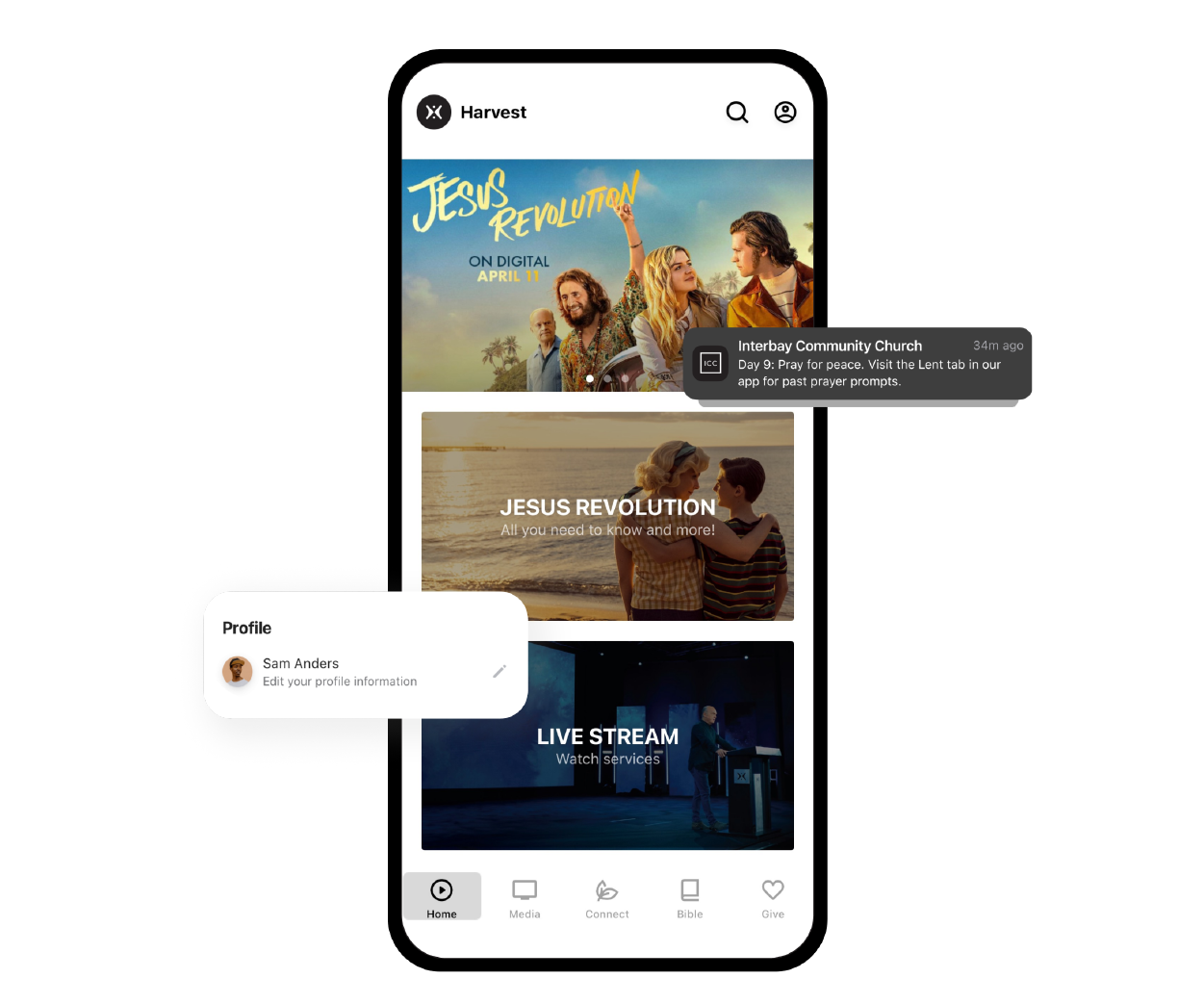
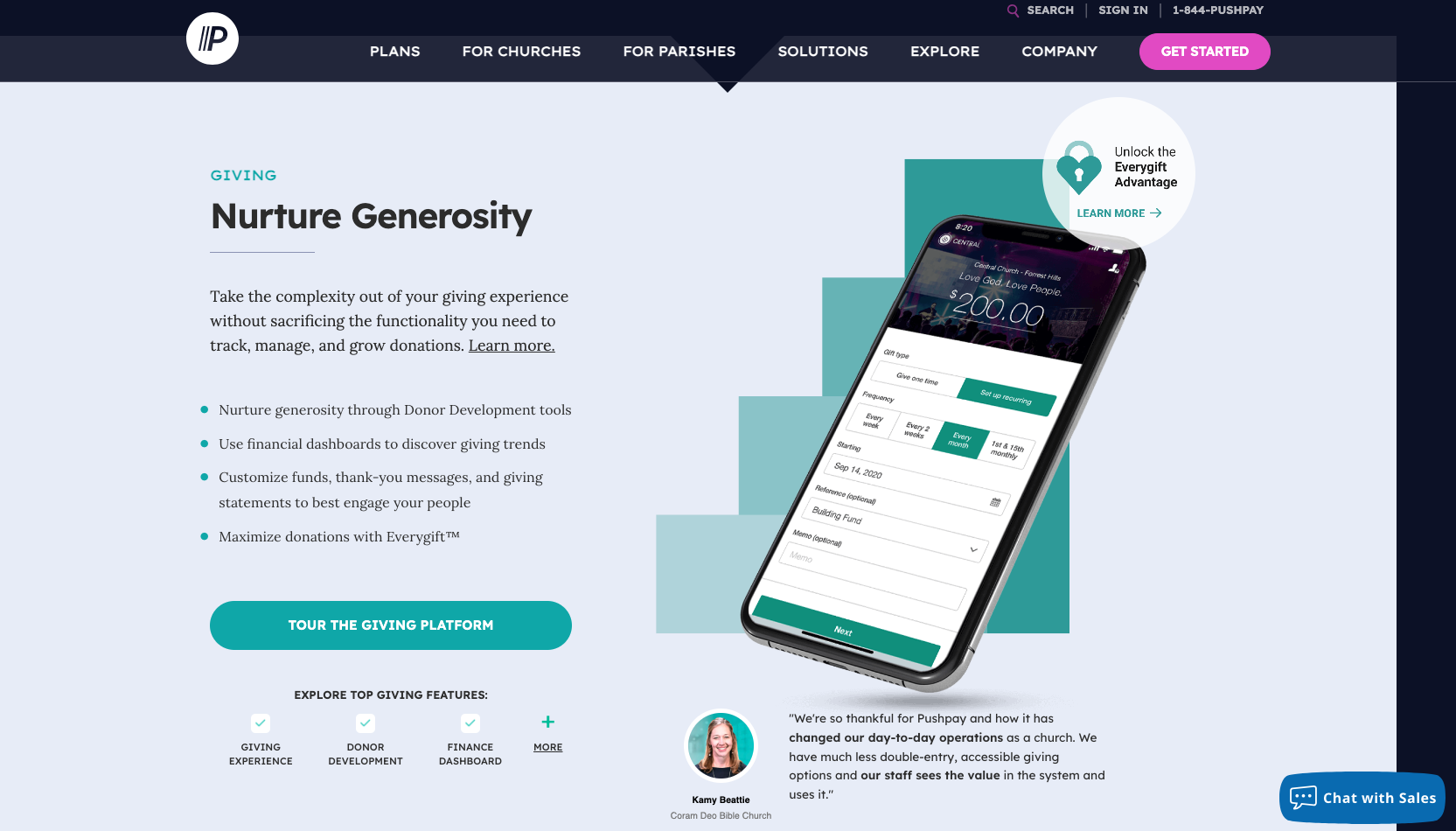











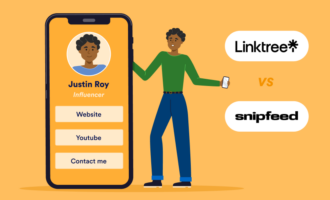

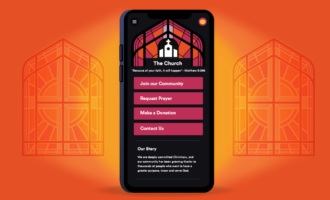








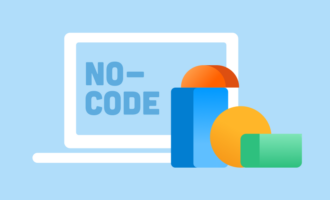






















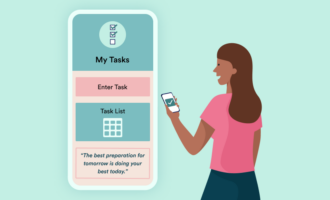








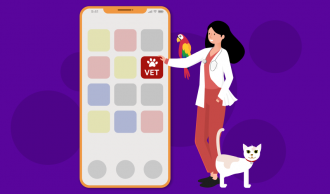



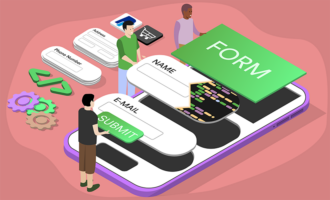

























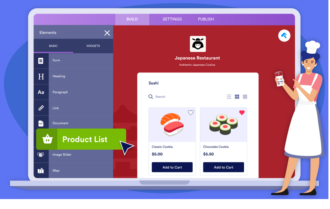









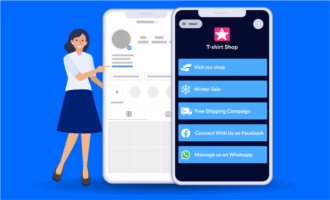
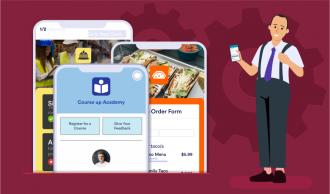






Send Comment: